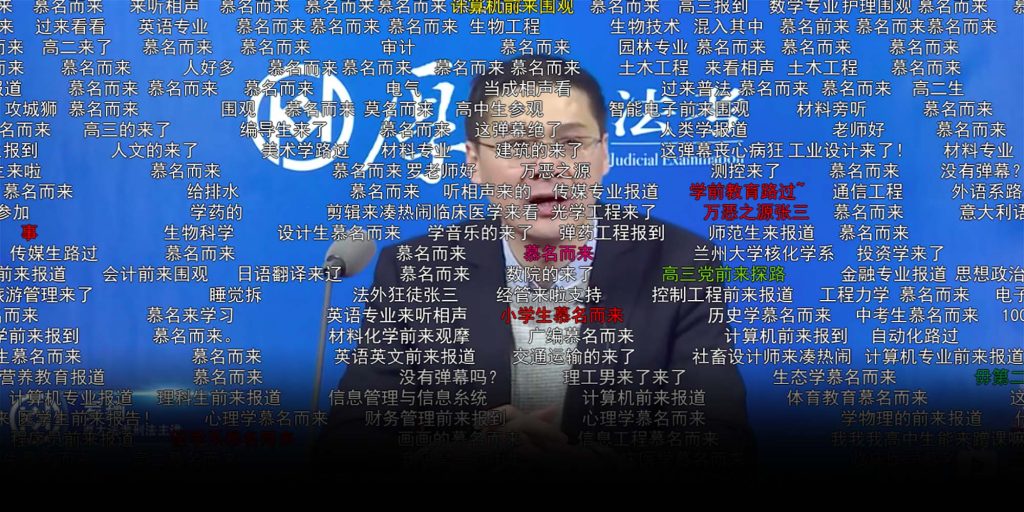Viewers appreciate that behind Luo Xiang’s ridiculous stories and anecdotes is someone who reveres the sanctity of his profession.

A screenshot from Bilibili shows viewers’ “bullet screen” comments scrolling across one of Luo Xiang’s lectures on law.
China’s National Judicial Examination, or fakao, isn’t the most obvious source of entertainment.
For anyone aiming to enter the legal field, they must hope they’re among the 10% or so who pass the test, often described as the single most difficult exam in China. Mastery of 17 subjects is required to unravel the complicated legal cases presented to those brave enough to attempt it.
One criminal law professor and fakao tutor has become a celebrity of sorts thanks to his engrossing teaching style and enthusiastic fan following. After creating an account on video-sharing site Bilibili earlier this month, Luo Xiang racked up 1.7 million followers in just five days.
In Luo’s lectures, which are recorded during class and later posted online, the professor brings criminal law to life through creative storytelling and deadpan humor — a style some fans have compared to crosstalk, or traditional Chinese comedic performance. As Luo relays real and made-up legal riddles to his class in a thick Hunan accent that many find endearing, he constantly changes the pitch and volume of his voice, vacillating between serious and absurd, and asking rhetorical questions while giving his viewers time to reflect on how they would respond.

Highlights from Luo Xiang’s online lectures on criminal law, for students preparing for China’s National Judicial Examination.
Luo’s complex legal anecdotes involve a regular cast of fictional characters, such as the nefarious Zhang San — a made-up-sounding name analogous to John Smith. Zhang is so comically diabolical that he has ascended to meme status among fans, who even made him his own Bilibili account. Over the course of Luo’s lectures, Zhang has poisoned people, scammed prostitutes, died of fright from the sound of fireworks while bathing in a pond, robbed people using a piece of poo, gone to prison for pouring scalding water on a tree, and been cuckolded by his wife.
The stories are often linked to real cases, but with an added twist of dark humor. Continue to read the full article here.
– This article originally appeared on Sixth Tone.





